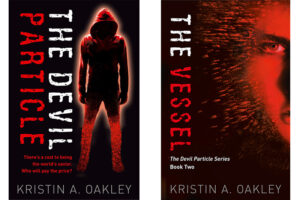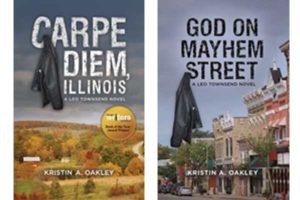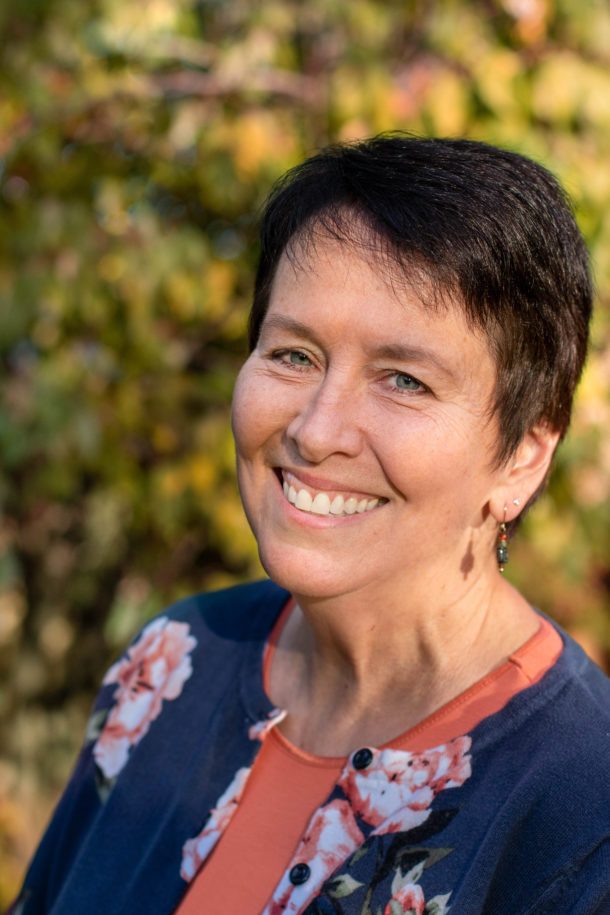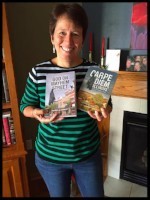At seventeen Daniel Sinclair found his voice.
As a baby, Daniel didn’t coo, squawk, wail, burp or gurgle. As a toddler, he scraped his chubby knees and soiled his cloth diapers, but he never cried out in pain or discomfort. He communicated through nods. On Daniel’s fourth birthday, his pediatrician found nothing physically or psychologically wrong with Daniel and recommended teaching the boy sign language. His mother enrolled him in a free program at the local clinic. By the end of the week, Daniel’s hands spoke fluently.
Daniel was dumb, but he wasn’t dumb. At the family’s chipped Formica kitchen table under one bare light bulb, he’d memorize Hamlet soliloquies when he wanted a break from dissecting college biology textbooks. During idle moments, he’d stretch out on the lumpy cot he used for a bed and solve geometric proofs. His mother called him a genius, his father called him an idiot.
On his eighth birthday, his distressed mother dragged him home from yet another round of county-appointed neurologists, psychiatrists and speech clinicians. “He ain’t never gonna talk,” she lamented to his father who sat in his battered easy chair watching Dick Van Dyke reruns and downing bottles of Budweiser.
“‘Course not.” He dropped his fourth empty on the floor, which clinked against the others, and looked at his only son. “Ya pamper him too much.” The scrawny kid grinned. The father’s face contorted. He hefted his three hundred and twenty-eight pounds out of the groaning chair and grabbed Daniel’s bony shoulders, “I’ll beat it out of him.”
SMACK.
Daniel remained quiet but his cheek raged red.
After his parents screeched and hollered through the end of the Dick Van Dyke Show and an entire Brady Bunch episode, his mother kicked his father out of the house. They were divorced before Daniel turned nine. He never saw his father again.
A slap meant nothing to Daniel. He had endured schoolyard beatings and teacher tauntings from the very first day he marched into The Little Angels’ Preschool. Throughout his school years, it became a contest to see who could instigate a sound from him. Everyone failed. Well, almost everyone.
Three days after Daniel turned seventeen, he aced his graduate-level physics exam and celebrated by reclining against the trunk of a sugar maple tree on the grounds of Northwestern University. He watched sailboats skip over whitecaps on Lake Michigan before opening his copy of Robinson Crusoe. A rare Indian summer breeze tossed crisp crimson leaves and ruffled the well-worn pages of his book. Giddy undergrads exited the Regenstein Hall of Music in search of a quick lunch between classes. Daniel watched the co-eds pass by.
“Pulchritudinous,” he declared.
The world stopped, or at least that part of the world within hearing distance.
The world stopped not because people were surprised he spoke or because no one except Professor Beaumont knew what that word meant, but because of the quality of Daniel’s voice. Daniel’s vocal cords emitted a melody sweeter than that of a songbird, richer than a cello concerto, more soothing than the turquoise sea caressing a pink beach, more exciting than the discovery of life on other planets. It was the most glorious sound on earth.
Charlotte, the young lady Daniel called “physically beautiful,” missed the pleasure of this sound. She was deaf. Instead, she bumped into her roommate who, like everyone else in the yard, had stopped to listen. Her stunned roommate signed, “That mute boy spoke!”
Curious and never shy, Charlotte walked across the grassy slope to the scruffy blond teenager and gestured, “What made you speak?”
Daniel stood, towering over her. “I saw you and I couldn’t help myself,” his hands answered.
Charlotte blushed but managed to sign, “Can I buy you a cup of coffee?” He grinned and slipped his arm through hers.
The students, professors, and groundskeepers of Harvard plus two dozen Canada geese followed the pair into the nearest Starbucks. The three employees froze with coffee pots in their hands and their mouths agape until Daniel crooned, “They’re with me.” He asked for two cappuccinos. Hearing the melody of his words, they offered him the store.
From then on, Daniel spoke only when inspired, which wasn’t very often. However, now that people knew he could talk and had heard rumors of his miraculous voice they tried cajoling, bullying, and bribing him to speak again. Daniel ignored their pleas.
One day, his roommate’s cell phone, left behind on the cushions of their futon, inspired him. Daniel opened the abandoned phone and pushed the numbers he had memorized but never used. When she heard the sweet words “Hi Mom!” she broke down. Their conversation was a singsong dotted with tears. It was the longest discussion Daniel ever had or ever would have.
Weeks passed and Daniel and Charlotte fell in love though this wasn’t the biggest change in Daniel’s life.
At Professor Beaumont’s urging, Daniel accepted invitations to appear on Live with Regis and Kelly, Late Night with David Letterman, and Oprah. Upon hearing him hiccup, Oprah cried. He even did a Saturday Night Live gig which didn’t go well. Daniel had the privilege of saying, “Live, from New York, it’s Saturday Night!” The actors, audience members, cameramen and stage crew were so spellbound that no one could move. A quick-thinking technician whose hearing aid battery had died, cut to commercial and then played an SNL rerun.
The tapes for the television shows Daniel appeared on sold for millions of dollars on e-bay, but the buyers were sorely disappointed. No one could record Daniel’s voice.
Those few times Daniel spoke made him an instant worldwide celebrity. His utterances were so sought after that famous linguists and heads of state competed for his attention.
Soon it became apparent that he was more than a celebrity, he was a savior. With just a word or a sound, he soothed potential suicides down from ledges and persuaded criminals to become law-abiding citizens. People did his bidding. He used this power to transform enemies into friends. Palestinians and Israelis listening to the quality of Daniel’s articulations hugged. He mentioned peace and the Gaza Strip became Eden. He soothed the Congolese, Kenyans and Darfurians into trading arms for seeds and ended famine in Africa. Wars became nonexistent. It appeared that the world loved Daniel, but deceptively so.
Two years after Daniel met Charlotte, they strolled hand-in-hand down Chicago’s Magnificent Mile. The summer heat radiating off the sidewalk wreaked havoc on Daniel’s ice cream cone. Charlotte gleefully helped by licking the chocolate flowing down his hand. She laughed as they managed to finish off the treat before Daniel found himself wearing it.
Half a block away, a small band of sweaty terrorists pushed through the crowd of shoppers and business executives who, in typical big city fashion, pushed back. When the grubby men struggled their way to Tiffany’s where the couple admired diamond engagement rings in the store’s window, they grabbed Daniel, wrestled him into their rusty Dodge minivan and pulled out into rush hour traffic. Half a block later the car lurched to a stop. The side door slid open. Daniel jumped out. His melodious yawn had dazzled them.
By the time Daniel turned twenty-one, several attempts were made on his life. A has-been dictator with cotton in his ears and dreams of glory attacked Daniel with a butcher knife in Union Station. The thirty-seven commuters within earshot tackled the lunatic before he started carving. While on the way to his Wrigleyville apartment laden with grocery bags, five members of the impotent Hardcore Gang started to attack Daniel with baseball bats but were stopped mid-swing when he roared “Play Ball.” A couple of would-be assassins attempted to shoot Daniel while he slept, but his exquisite snoring affected their aim.
One didn’t miss.
A tone-deaf sharpshooter nicknamed “The Silencer” had been given a handsome down payment by a mafia cartel Daniel put out of business. On the sun-speckled Chicago Lakefront Path, he shot a jogging Daniel in the chest. The park police rushed Daniel off to Northwestern Memorial Hospital where America’s best doctors saved him, to the world’s relief.
Then Daniel disappeared.
To this day the world is still searching.
High up in the canopies of a remote mountain rainforest, Daniel admires Charlotte’s brilliant violet eyes as they cuddle in a gently swaying hammock. An afternoon rain shower drums a subtle beat on the thatched roof of their tree house. He sings to her, she smiles and the tropical birds are jealous.





